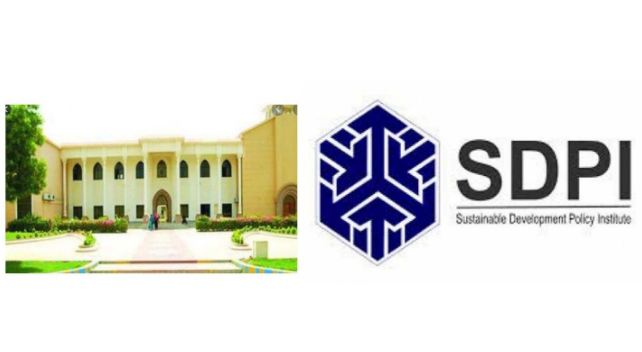ISLAMABAD, May 19 (DNA): Vaqar Ahmed, Joint Executive Director of the Sustainable Development Policy Institute (SDPI), highlighted that by embracing iTFA-free alternatives and reformulating products, Pakistan can offer healthier food options to consumers and meet evolving regulatory standards.
Speaking at the SDPI’s session titled ‘Empowering SMEs; Training on reducing industrial trans fatty acids for a healthier Pakistan’ on Sunday, Dr. Ahmed emphasized the importance of reducing industrially produced trans fatty acids (iTFAs). He stressed the need for informed strategies and well-planned regulations in this area.
The discussion covered a wide range of critical topics, including the sources and health risks of TFAs, national and international regulations, and iTFA-free alternatives and reformulation strategies.
Dr. Ahmed pointed out the next steps for both small and medium-sized enterprises (SMEs) and government institutions. SMEs need to integrate the knowledge gained from this session into their practices, while government institutions should continue to support and guide SMEs, ensuring they comply with regulations and fostering innovation and reformulation.
Muhammad Salman, Country Lead at Cargill, noted that the discussion aimed to improve the lives of Pakistanis. He mentioned that while Pakistan lacks a legislative mandate, Cargill adheres to WHO-recommended tolerance levels and has ceased working with streams involving oil and fat businesses. He highlighted that labeling laws have been in place in the United States since 2006, and businesses were asked to reduce iTFAs by 2016.
Dr. Razia Safdar, Senior Advisor at SDPI, spoke about the significant impact of dietary choices on health outcomes in Pakistan. She explained that a balanced diet includes carbohydrates, proteins, and fats, but not all fats are created equal. While monounsaturated and polyunsaturated fats are beneficial, saturated and trans fats can have negative health effects.
She noted that iTFAs, found in products like shortening, margarine, banaspati, and non-dairy coffee creamers, as well as in fried and baked goods, are particularly concerning. These iTFAs are linked to an increased risk of non-communicable diseases (NCDs) like diabetes and hypertension. In Pakistan, the prevalence of these conditions is alarming, with a high intake of trans fats contributing to 58% of deaths annually.
Dr. Tahira Siddique, Deputy Director of the Islamabad Food Authority, mentioned that trans fatty acids have been popular since the 20th century for their taste, texture, and shelf life. According to WHO stats, Pakistan is the second-largest consumer of trans fatty acids in the Eastern Mediterranean Region, after Egypt. The WHO recommends limiting iTFAs to not more than two percent of total fat in all food products. The WHO’s ‘REPLACE’ initiative, launched in 2018, aims to promote healthier fats globally. So far, 53 countries have implemented policies to lower health risks for at least 46% of the world’s population.
Dr. Syed Muhammad Ghufran Saeed, Associate Professor at the University of Karachi, discussed iTFA-free alternatives and reformulation strategies. He shared that the trans-fat content in hydrogenated fats varies based on the extent and conditions of hydrogenation. More than 278,000 deaths annually are attributed to the intake of industrially produced trans fats. He highlighted five core strategies to reduce or eliminate trans fat content: formulation, genetic modification of fatty acid composition, hydrogenation, fractionation, and interesterification.
Farah Ather, Deputy Director of Standard and Accreditation at the Punjab Food Authority, addressed the non-communicable disease crisis in Pakistan. She stated that the rise of NCDs has reached alarming levels, with six out of ten deaths in the country attributed to NCDs, and three of those six due to cardiovascular diseases.
The discussion aimed to help SMEs in the food industry understand the health risks of iTFAs and explore viable alternatives for product reformulation. By empowering SMEs to comply with national and international iTFA standards, Pakistan can contribute to a healthier food supply.

















